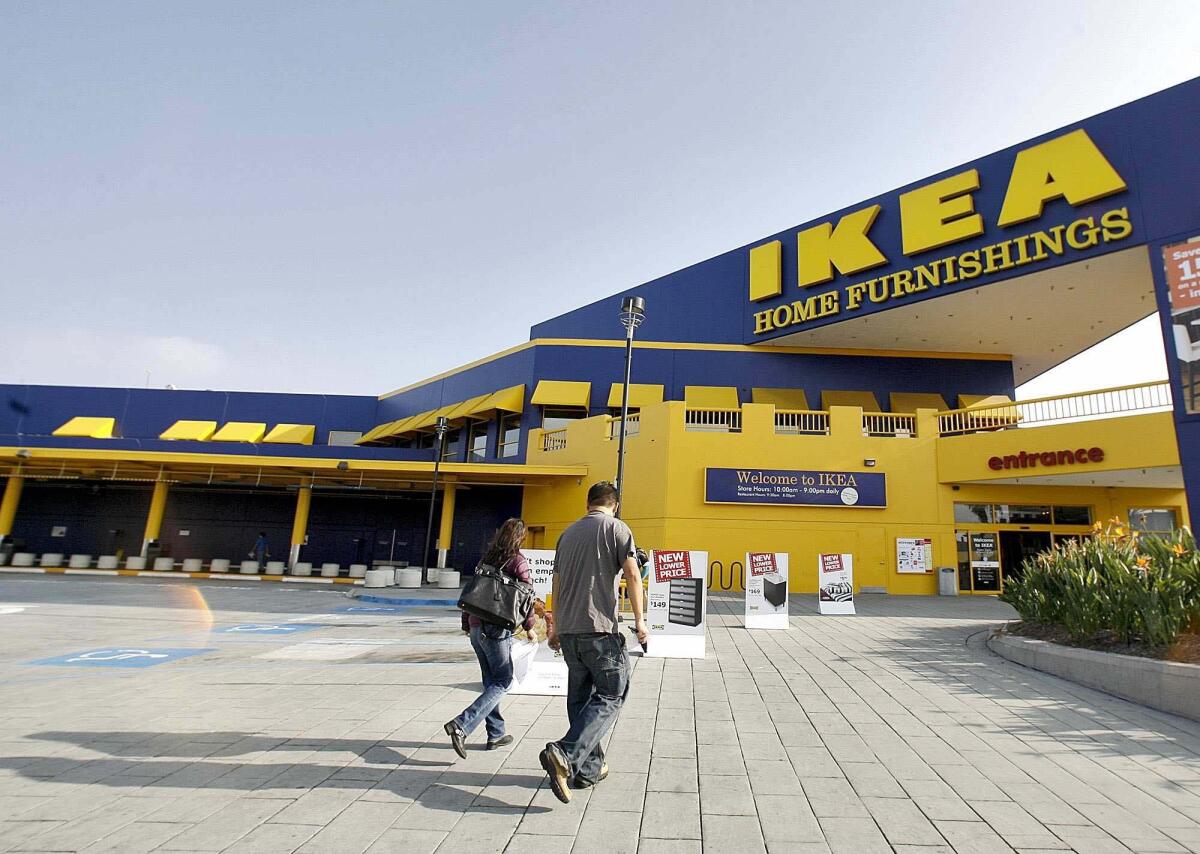Ikea to sell solar panels in British stores, but U.S. must wait

- Share via
Within the next year, British shoppers will be able to waltz into an Ikea Corp. store, home to Malm beds and Dinera plates, and buy solar panels.
But it might be a while longer before their American counterparts will be able to do the same.
The Swedish home goods giant will offer photovoltaic solar panel packages in its 17 British stores within the next 10 months. The systems, from Chinese manufacturer Hanergy Solar Group, will cost roughly $9,200 for a three-bedroom home.
With the help of British government subsidies, panel purchasers should be able to see returns within seven years, according to Ikea.
Last year, Ikea paired with Hanergy to install rooftop photovoltaic modules on Ikea stores in China.
The retailer has for years pursued an eco-friendly philosophy, offering energy-efficient appliances and LED bulbs while also pledging to rely on renewable power for all of its energy needs by 2020.
In the U.S., nearly 40 Ikea locations -- including distribution centers -- already use solar panels to generate power.
But the company said in a statement that “at this point in time Ikea US has no plans to sell solar panels.”
And so far, no other retailers in the country stock solar panels on their shelves, according to the Solar Energy Industries Assn.
“But it’s coming,” the trade group said in a statement. “And if Ikea is successful in the UK, it’s likely to happen sooner than anyone thinks.”
Many stores already stock products powered by solar energy, such as smartphone charging cases, fans, radios, lamps and more. Colorado-based Ascent Solar Technologies Inc., which makes similar devices, said this week that Wal-Mart Stores Inc. would carry some of its items.
ALSO:
Ikea plans 100 budget hotels across Europe
Ikea installs 1,260 solar panels to help power Burbank store
Ikea: ‘We deeply regret’ use of forced labor in East Germany
More to Read
Inside the business of entertainment
The Wide Shot brings you news, analysis and insights on everything from streaming wars to production — and what it all means for the future.
You may occasionally receive promotional content from the Los Angeles Times.








